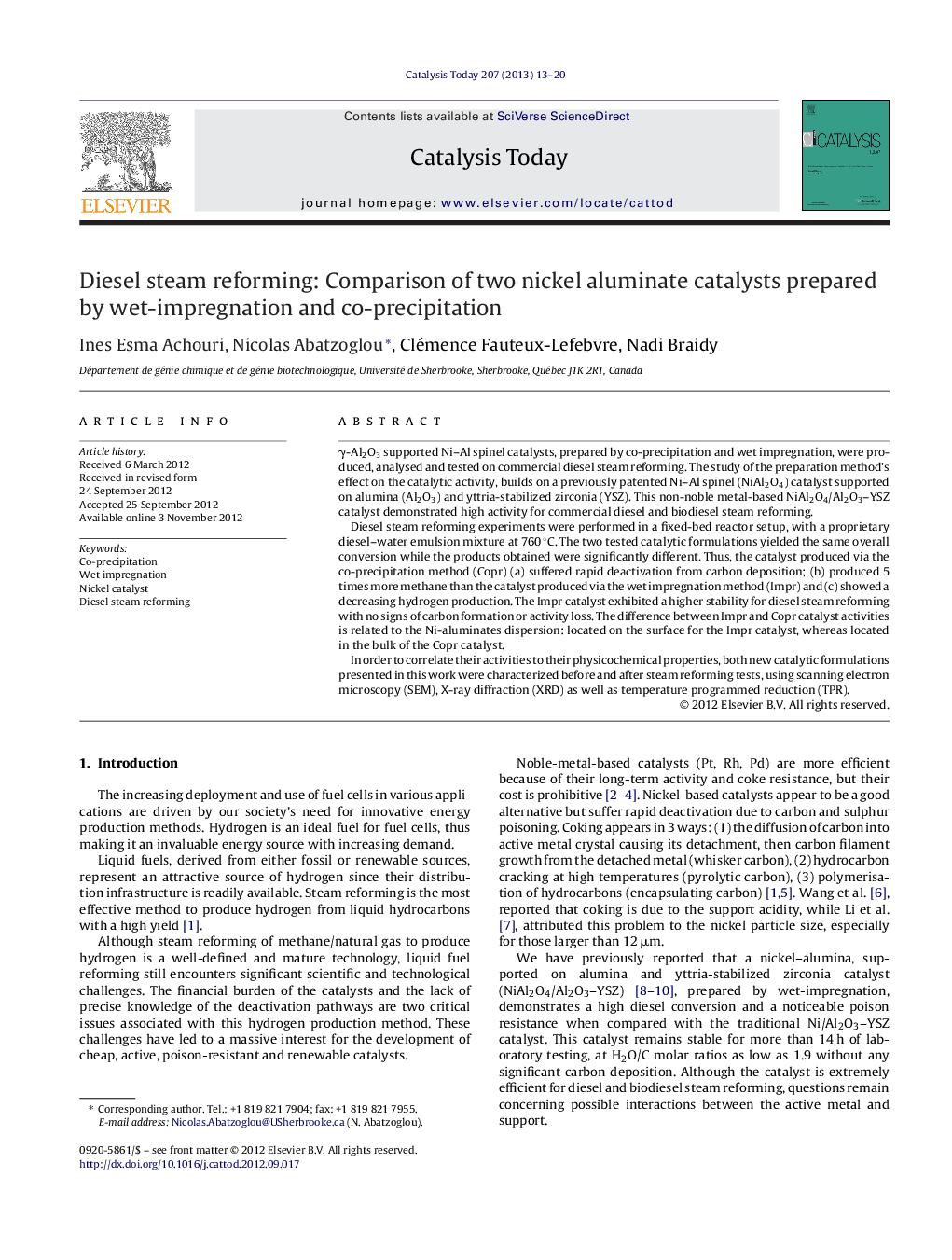| Article ID | Journal | Published Year | Pages | File Type |
|---|---|---|---|---|
| 54855 | Catalysis Today | 2013 | 8 Pages |
γ-Al2O3 supported Ni–Al spinel catalysts, prepared by co-precipitation and wet impregnation, were produced, analysed and tested on commercial diesel steam reforming. The study of the preparation method's effect on the catalytic activity, builds on a previously patented Ni–Al spinel (NiAl2O4) catalyst supported on alumina (Al2O3) and yttria-stabilized zirconia (YSZ). This non-noble metal-based NiAl2O4/Al2O3–YSZ catalyst demonstrated high activity for commercial diesel and biodiesel steam reforming.Diesel steam reforming experiments were performed in a fixed-bed reactor setup, with a proprietary diesel–water emulsion mixture at 760 °C. The two tested catalytic formulations yielded the same overall conversion while the products obtained were significantly different. Thus, the catalyst produced via the co-precipitation method (Copr) (a) suffered rapid deactivation from carbon deposition; (b) produced 5 times more methane than the catalyst produced via the wet impregnation method (Impr) and (c) showed a decreasing hydrogen production. The Impr catalyst exhibited a higher stability for diesel steam reforming with no signs of carbon formation or activity loss. The difference between Impr and Copr catalyst activities is related to the Ni-aluminates dispersion: located on the surface for the Impr catalyst, whereas located in the bulk of the Copr catalyst.In order to correlate their activities to their physicochemical properties, both new catalytic formulations presented in this work were characterized before and after steam reforming tests, using scanning electron microscopy (SEM), X-ray diffraction (XRD) as well as temperature programmed reduction (TPR).
Graphical abstractFigure optionsDownload full-size imageDownload high-quality image (183 K)Download as PowerPoint slideHighlights► Ni–Al catalysts supported on alumina were synthesized by wet-impregnation (Impr) and co-precipitation (Copr). ► Both preparation methods resulted in the metastable NiAl10O16 phase supported on alumina. ► The stable NiAl2O4 grows at the expense of the metastable phase under reforming conditions. ► This NiAl2O4 phase has proven active and coke resistant for several hours. ► The way the spinel phases are formed and dispersed in the catalyst matrix determines the reactivity of the Ni species.
